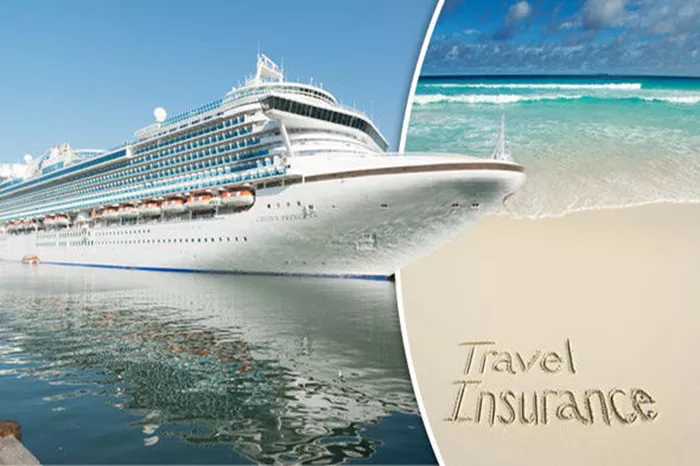Should I Buy Cruise Insurance? When planning a cruise, many travelers wonder if purchasing cruise insurance is a necessary step. This article will explore the benefits and potential drawbacks of cruise insurance, helping you decide if it’s a worthwhile investment for your next seafaring adventure.
What is Cruise Insurance?
Cruise insurance, a type of travel insurance, is designed to cover various risks associated with taking a cruise. It typically includes coverage for trip cancellation or interruption, medical emergencies, evacuation, lost or delayed baggage, and other unforeseen events that might occur before or during your cruise.
Trip Cancellation and Interruption Coverage
One of the primary benefits of cruise insurance is coverage for trip cancellation or interruption. If you need to cancel your trip due to a covered reason, such as illness, injury, or a family emergency, cruise insurance can reimburse you for non-refundable expenses. This can include the cost of the cruise itself, airfare, and other pre-paid travel arrangements.
Medical Emergency Coverage
Medical emergencies can happen anytime, and being on a cruise ship adds complexity to receiving adequate care. Cruise insurance typically includes coverage for medical expenses incurred during your trip. This can cover doctor visits, hospital stays, and even emergency dental treatment. Considering that most health insurance plans do not cover medical costs incurred outside your home country, this can be a crucial component of cruise insurance.
Emergency Evacuation Coverage
In the event of a severe medical emergency, you may need to be evacuated from the cruise ship to the nearest medical facility. This process can be costly, often running into tens of thousands of dollars. Cruise insurance can cover the cost of emergency medical evacuation, ensuring you receive the necessary care without facing financial ruin.
Baggage Loss and Delay Coverage
Lost, stolen, or delayed baggage can quickly put a damper on your vacation. Cruise insurance often includes coverage for lost or delayed baggage, reimbursing you for the cost of replacing essential items. This coverage can be especially valuable if your luggage contains expensive items or necessary medications.
Travel Delay Coverage
Travel delays are another common issue that can disrupt your cruise plans. Whether due to bad weather, mechanical issues, or other unforeseen events, delays can result in missed connections and additional expenses. Cruise insurance can cover costs incurred due to travel delays, such as hotel accommodations, meals, and transportation.
Coverage for Pre-Existing Conditions
Some cruise insurance policies offer coverage for pre-existing medical conditions, provided you meet specific criteria. This can be particularly important for travelers with chronic health issues, ensuring they receive the necessary care if their condition flares up during the cruise.
Evaluating the Cost of Cruise Insurance
The cost of cruise insurance can vary widely depending on several factors, including your age, the cost of your trip, the length of your cruise, and the level of coverage you choose. Generally, you can expect to pay between 4% and 10% of your total trip cost for a comprehensive cruise insurance policy.
Factors Affecting the Cost
- Age: Older travelers typically pay more for cruise insurance due to the increased risk of medical issues.
- Trip Cost: The more expensive your trip, the higher the cost of insuring it.
- Trip Length: Longer trips generally cost more to insure.
- Coverage Level: Policies with higher coverage limits and more comprehensive benefits will be more expensive.
Is the Cost Justifiable?
To determine if the cost of cruise insurance is justifiable, consider the potential financial impact of an unexpected event. For example, if you need to cancel your $5,000 cruise due to a medical emergency, cruise insurance could reimburse you for most or all of that cost. Similarly, if you require a medical evacuation costing $50,000, having cruise insurance could save you from a significant financial burden.
Assessing Your Risk Tolerance
When deciding whether to purchase cruise insurance, it’s essential to assess your risk tolerance. Consider how comfortable you are with the potential financial loss if something goes wrong. Here are a few scenarios to help you gauge your risk tolerance:
High Risk Tolerance
- You have substantial savings and can absorb the financial loss of a canceled trip or medical emergency.
- You have comprehensive health insurance that covers you while traveling abroad.
- You are willing to accept the possibility of a financial loss to save on the cost of insurance.
Moderate Risk Tolerance
- You have some savings but would prefer to avoid a significant financial loss.
- You have health insurance but are unsure if it covers international travel.
- You want peace of mind knowing you have some financial protection but are not overly concerned about minor losses.
Low Risk Tolerance
- You have limited savings and cannot afford a significant financial loss.
- You do not have health insurance that covers international travel.
- You prefer the security of knowing you are protected against a wide range of potential issues.
Common Exclusions and Limitations
While cruise insurance offers valuable coverage, it’s essential to understand its exclusions and limitations. Not all events or circumstances are covered, and policies can vary widely. Common exclusions and limitations include:
Pre-Existing Conditions
Many cruise insurance policies exclude coverage for pre-existing medical conditions unless you meet specific criteria. Be sure to read the policy details carefully and consider purchasing a policy with a pre-existing condition waiver if necessary.
High-Risk Activities
Some cruise insurance policies exclude coverage for high-risk activities such as scuba diving, parasailing, or other adventure sports. If you plan to participate in these activities, look for a policy that includes coverage for them.
Acts of War or Terrorism
Many policies exclude coverage for losses resulting from acts of war or terrorism. If this is a concern, consider purchasing a policy that offers specific coverage for these events.
Alcohol or Drug-Related Incidents
Incidents that occur while you are under the influence of alcohol or drugs are often excluded from coverage. Always check the policy details to understand the limitations.
Default of Travel Supplier
If your cruise line or travel supplier goes bankrupt or defaults, some policies may not cover the associated losses. Look for a policy that includes coverage for supplier default if this is a concern.
See Also: Should I Buy Plane Ticket Insurance?
Types of Cruise Insurance Policies
There are several types of cruise insurance policies available, each offering different levels of coverage. Understanding these options can help you choose the best policy for your needs.
Comprehensive Coverage
Comprehensive cruise insurance policies offer the broadest range of coverage, including trip cancellation, medical emergencies, evacuation, baggage loss, and travel delays. These policies are ideal for travelers seeking extensive protection and peace of mind.
Medical-Only Coverage
Medical-only policies focus on providing coverage for medical emergencies and evacuation. These policies are suitable for travelers who are primarily concerned about health-related issues but are less worried about trip cancellation or baggage loss.
Cancellation-Only Coverage
Cancellation-only policies cover trip cancellation and interruption but do not include medical or baggage coverage. These policies are a good option for travelers who want to protect their financial investment in the trip but are less concerned about other risks.
Evacuation-Only Coverage
Evacuation-only policies provide coverage for emergency medical evacuation but do not include other types of coverage. These policies are ideal for travelers who are confident in their health insurance but want to ensure they have evacuation coverage.
Purchasing Cruise Insurance: Tips and Best Practices
When purchasing cruise insurance, follow these tips and best practices to ensure you get the best coverage for your needs:
Buy Early
Purchase cruise insurance as soon as you book your trip. This ensures you are covered for any unforeseen events that might occur before your departure. Additionally, some policies offer better coverage if purchased within a certain time frame after booking.
Compare Policies
Shop around and compare different cruise insurance policies to find the best coverage and price. Use comparison websites and read customer reviews to get a sense of each policy’s benefits and drawbacks.
Read the Fine Print
Carefully read the policy details, including exclusions and limitations. Make sure you understand what is and isn’t covered, and ask questions if anything is unclear.
Consider Add-Ons
Some cruise insurance policies offer add-ons or optional coverage for specific needs, such as high-risk activities or pre-existing conditions. Consider these options to tailor your policy to your unique situation.
Check Your Existing Coverage
Review your existing health insurance and credit card benefits to see if they offer any travel-related coverage. This can help you avoid duplicating coverage and save on the cost of cruise insurance.
Real-Life Scenarios: When Cruise Insurance Paid Off
To illustrate the value of cruise insurance, here are a few real-life scenarios where having coverage made a significant difference:
- Scenario 1: Medical Emergency
A couple on a Caribbean cruise experienced a medical emergency when one of them suffered a heart attack. The onboard medical staff stabilized the patient, but an emergency evacuation to a hospital on the mainland was necessary. The cost of the evacuation and medical treatment exceeded $50,000. Fortunately, they had purchased comprehensive cruise insurance, which covered the expenses.
- Scenario 2: Trip Cancellation
A family had planned an Alaskan cruise for months, but a week before departure, one of their children was diagnosed with a severe illness. They had to cancel the trip to focus on treatment. Their cruise insurance policy reimbursed them for the non-refundable expenses, including the cost of the cruise and their flights.
- Scenario 3: Lost Baggage
A solo traveler embarking on a Mediterranean cruise had their luggage lost by the airline. With no clothes or essentials, they had to purchase new items while waiting for their luggage to be found. Their cruise insurance policy covered the cost of the new purchases, providing much-needed relief.
Conclusion
Deciding whether to purchase cruise insurance ultimately depends on your individual circumstances, risk tolerance, and the specific details of your trip. For many travelers, the peace of mind and financial protection offered by cruise insurance make it a worthwhile investment.
Consider the potential risks and costs associated with your cruise, and weigh them against the price of an insurance policy. By carefully evaluating your needs and understanding the coverage options available, you can make an informed decision that ensures a worry-free and enjoyable cruise experience.
[inline_related_posts title=”You Might Be Interested In” title_align=”left” style=”list” number=”6″ align=”none” ids=”3171,3142,3064″ by=”categories” orderby=”rand” order=”DESC” hide_thumb=”no” thumb_right=”no” views=”no” date=”yes” grid_columns=”2″ post_type=”” tax=””]






















